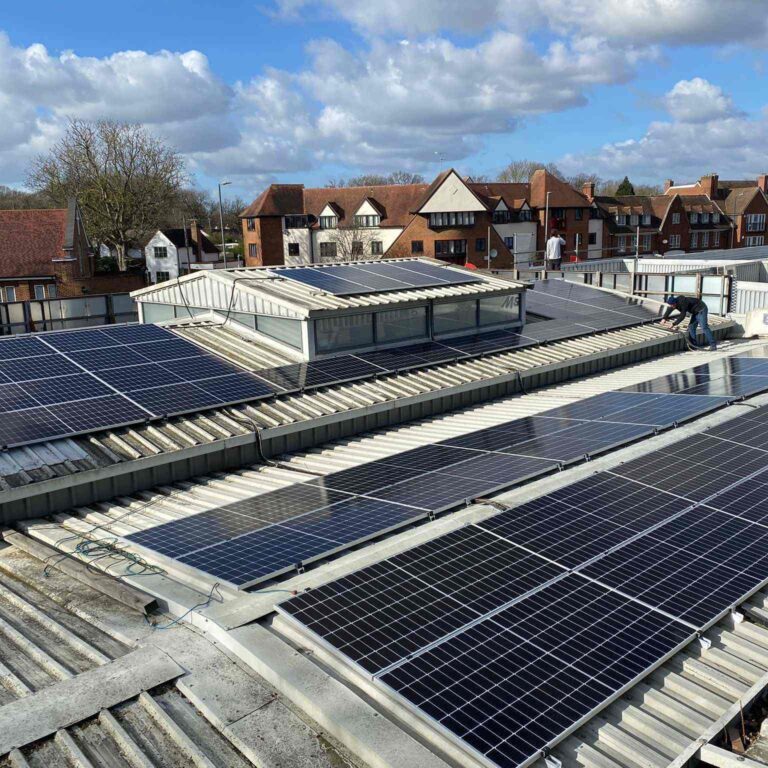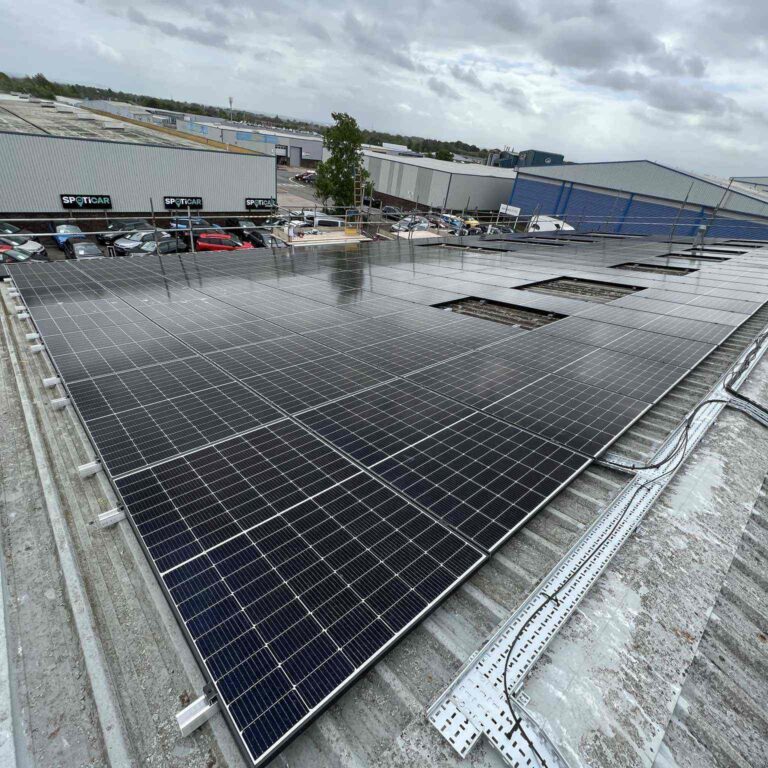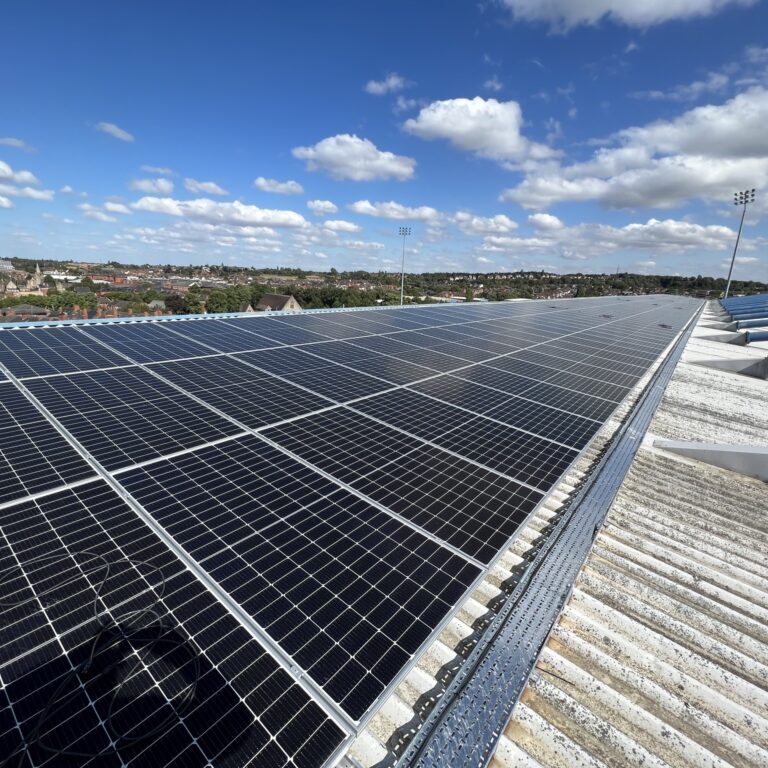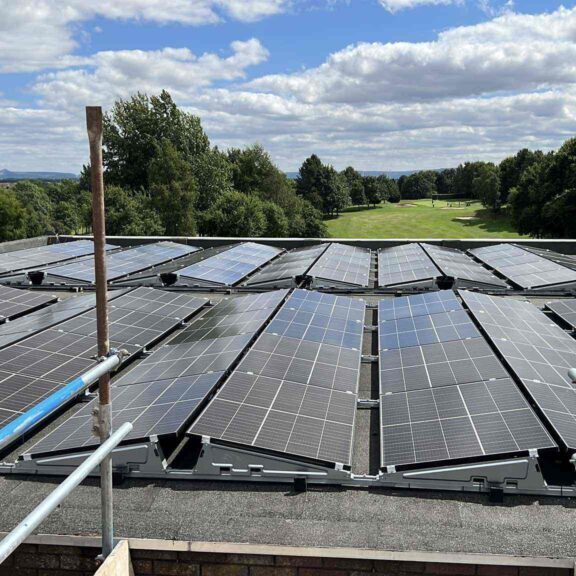As businesses across the UK strive to reduce operational costs and enhance sustainability, commercial solar power is emerging as a popular and effective solution. Investing in commercial solar power can lead to significant savings on energy bills, a reduction in carbon footprint, and an improved corporate image. If you’re considering making the switch to commercial solar power, here’s a comprehensive guide on how to get started with commercial solar power for your business.
Understanding the Basics of Commercial Solar Power
Commercial solar power involves installing solar panels on your business premises to generate electricity from sunlight. This renewable energy source can reduce your dependence on the grid, lower your energy costs, and contribute to a greener environment. To get started with commercial solar power, it’s essential to understand the basics, including how solar panels work and the benefits they offer.
1. Assess Your Business’s Energy Needs
Before diving into commercial solar power, assess your business’s energy consumption. Understanding your energy needs will help you determine the size of the solar system required to meet your requirements. Analyze your electricity bills to identify peak usage times and the total amount of energy consumed. This information is crucial for designing an efficient commercial solar power system tailored to your business.
2. Evaluate Your Property’s Solar Potential
The next step in getting started with commercial solar power is to evaluate your property’s solar potential. Factors such as roof orientation, tilt angle, and shading can affect the efficiency of your solar panels. Ideally, solar panels should face south and have an angle that maximizes exposure to sunlight. Conduct a site assessment to determine the best location for installing your solar panels and ensure there are no obstructions that could cast shadows.
3. Explore Financing Options
Investing in commercial solar power involves significant upfront costs, but various financing options can make it more affordable. Explore options such as solar loans, leases, and power purchase agreements (PPAs). Each financing method has its pros and cons, so choose the one that best aligns with your business’s financial situation and goals. Additionally, check for available grants and incentives in the UK, such as the Smart Export Guarantee (SEG), which can provide additional financial benefits.
4. Choose a Reputable Solar Installer
Selecting a reputable solar installer is crucial for a successful commercial solar power project. Look for installers with experience in commercial solar installations and positive customer reviews. Ensure the installer is certified and has a track record of completing projects similar to yours. A reliable installer will provide you with a detailed proposal, including system design, cost estimates, and a timeline for installation.
5. Design Your Solar System
Work with your chosen installer to design a commercial solar power system that meets your business’s energy needs. The system design will include the number of solar panels, their placement, and the type of inverter to be used. Your installer will consider factors such as roof space, energy consumption, and budget to create an efficient and cost-effective solar solution.
6. Obtain Necessary Permits and Approvals
Before installing your commercial solar power system, obtain the necessary permits and approvals from local authorities. In the UK, you may need planning permission, especially if your installation involves significant alterations to the property. Your solar installer can help you navigate the permitting process and ensure that all legal requirements are met.
7. Install the Solar Panels
Once permits are secured, the installation of your commercial solar power system can begin. The installation process typically involves mounting the solar panels on your roof or property, connecting the panels to the inverter, and integrating the system with your existing electrical setup. The installation team will ensure that everything is done safely and efficiently to maximize the performance of your commercial solar power system.
8. Monitor and Maintain Your Solar System
After installation, it’s important to monitor and maintain your commercial solar power system to ensure it operates at peak efficiency. Many solar systems come with monitoring tools that allow you to track energy production and identify any issues. Regular maintenance, such as cleaning the panels and checking for any obstructions, will help keep your system in optimal condition. Your installer should provide maintenance recommendations and support to address any potential problems.
9. Take Advantage of Financial Incentives
Make sure to take full advantage of any financial incentives available for commercial solar power. In addition to the Smart Export Guarantee (SEG), other incentives may be available at the local or regional level. These incentives can significantly reduce the overall cost of your solar system and improve your return on investment. Keep track of any changes in government policies or new incentives that may benefit your business.
10. Evaluate the Impact and Adjust as Needed
Once your commercial solar power system is up and running, evaluate its impact on your energy costs and environmental footprint. Monitor your energy savings and compare them to your initial projections. If you notice any discrepancies or areas for improvement, work with your installer to make necessary adjustments. Regular evaluation will ensure that you continue to reap the benefits of your commercial solar power investment.
Conclusion
Getting started with commercial solar power is a strategic decision that can lead to significant cost savings, environmental benefits, and enhanced corporate reputation. By following these steps—assessing your energy needs, evaluating your property’s solar potential, exploring financing options, choosing a reputable installer, and maintaining your system—you can ensure a successful transition to commercial solar power. As energy costs rise and sustainability becomes increasingly important, investing in commercial solar power is a smart business decision that will benefit your company for years to come.



